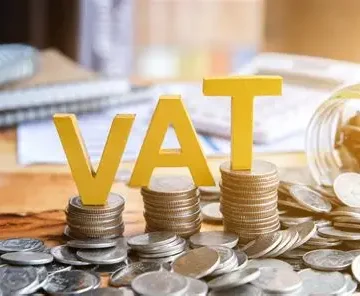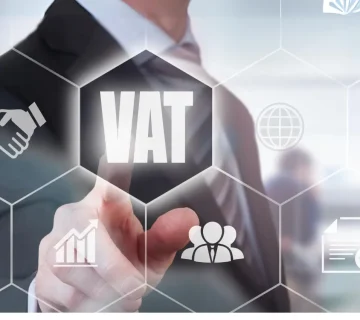In recent years, the United Arab Emirates (UAE) has significantly enhanced its economic policies to align with global financial systems. One of the most notable developments in this shift is the implementation of the Value Added Tax in the UAE. This tax has become a key source of government revenue while promoting transparency, accountability, and fiscal sustainability across all sectors. In this comprehensive guide by AlphabuDhabi, we will explore the purpose, process, percentages, implications, and regulations related to the Value Added Tax in the UAE.
What Is Value Added Tax in the UAE?
Value Added Tax in the UAE is a consumption tax levied on goods and services at each stage of the supply chain. It was introduced on January 1, 2018, at a standard rate of 5%. Unlike income taxes, which target individuals’ earnings, VAT is paid by the end consumer but collected and remitted to the government by businesses.
The VAT system ensures that the UAE remains on par with global financial standards while generating a new, stable source of revenue that the government can use to fund public services like health, education, and infrastructure.
Purpose and Importance of Value Added Tax in the UAE

The UAE’s decision to introduce VAT stemmed from its strategic goal of diversifying government revenue away from oil dependence. As such, the Value Added Tax in the UAE plays a vital role in:
- Enhancing economic resilience
- Encouraging fiscal responsibility
- Broadening the government’s revenue base
- Supporting the delivery of high-quality public services
AlphabuDhabi supports entrepreneurs and corporations in adapting to such regulatory frameworks by providing tailored consulting and VAT services, ensuring smooth compliance.
UAE VAT Percentage
The current UAE VAT percentage is 5%, which applies to most goods and services unless explicitly exempt or zero-rated. This relatively low rate makes the UAE one of the most tax-competitive environments globally while still generating necessary government funds.
Some items, such as basic food commodities, healthcare, and education, may fall under the 0% VAT category. Others, like certain financial services or residential property rentals, may be exempt entirely. Understanding these distinctions is essential for compliance and accurate financial planning.
Types of VAT in UAE
There are generally three types of VAT in the UAE:
- Standard-rated VAT (5%): Most goods and services fall under this category.
- Zero-rated VAT (0%): Includes sectors such as international transport, certain educational and healthcare services, and exports.
- Exempt VAT: Applies to specific financial services and residential properties.
Understanding the types of VAT in UAE is vital for accurate invoicing, filing, and overall compliance. AlphabuDhabi’s team can help your business identify which category your products or services fall into.
UAE VAT Law: Key Features
The VAT framework in the UAE is governed by the Federal Decree-Law No. (8) of 2017 on Value Added Tax, commonly referred to as the UAE VAT Law. Key aspects of this law include:
- Registration Requirements: Businesses exceeding AED 375,000 in taxable supplies must register for VAT.
- VAT Filing: Companies must submit VAT returns quarterly or monthly.
- Record Keeping: Businesses must retain records of all transactions for at least five years.
- Penalties: Failure to comply may result in significant fines and penalties.
With AlphabuDhabi’s expertise, you can navigate the UAE VAT Law confidently, ensuring your operations remain fully compliant with national standards.
VAT Registration UAE: Who Should Register?

VAT registration in UAE is mandatory for any business whose taxable supplies and imports exceed the mandatory threshold of AED 375,000 annually. There is also a voluntary threshold of AED 187,500, allowing smaller businesses to register if they choose.
VAT Registration UAE Eligibility
Eligibility for VAT registration in the UAE depends on a variety of factors:
- Nature of the business activity
- Annual taxable turnover
- Location of operations
- Involvement in import/export activities
Businesses meeting the threshold must apply for a Tax Registration Number (TRN) through the Federal Tax Authority (FTA). AlphabuDhabi simplifies this process with a step-by-step VAT registration service, ensuring your documents and application are in order.
How to Calculate VAT: Value Added Tax in the UAE Calculator
Calculating VAT is straightforward once you understand the structure. Here’s a simple example using a Value Added Tax in the UAE calculator:
If a product is priced at AED 1,000:
- VAT (5%) = AED 50
- Total Price = AED 1,050
This model applies across all standard-rated items. Businesses must ensure their invoices reflect VAT correctly to avoid compliance issues. AlphabuDhabi offers automated tools and training on using VAT calculators accurately in daily business operations.
Corporate Tax UAE vs VAT
It’s important to differentiate Corporate Tax UAE from VAT:
- VAT is a consumption-based tax applied to goods and services.
- Corporate Tax UAE (introduced in 2023) is a direct tax on company profits, levied at a standard rate of 9% for profits exceeding AED 375,000.
While VAT affects pricing and transactions, corporate tax impacts net profits. AlphabuDhabi offers consultancy services covering both tax types, helping businesses remain profitable and compliant.
Impact of Value Added Tax in the UAE on Businesses
The implementation of VAT has required businesses in the UAE to:
- Update their accounting systems
- Train staff
- Modify pricing strategies
- Understand customer expectations
With AlphabuDhabi’s tailored support, companies can focus on growth while staying tax-compliant.
AlphabuDhabi’s Role in VAT Compliance

AlphabuDhabi is committed to assisting businesses in navigating the complexities of Value Added Tax in the UAE. Our team of tax advisors and compliance experts provides:
- VAT registration assistance
- Monthly and quarterly VAT filing
- VAT refund claims
- Staff training and capacity building
- Tax planning strategies to reduce financial burden
With local expertise and in-depth understanding of UAE regulations, AlphabuDhabi is your reliable partner in tax compliance and financial management.
Our Services at Alpha Abu Dhabi
At AlphaBudhabi, we are committed to providing a wide range of services that meet the needs of individuals, entrepreneurs, startups, and large companies. Our most prominent services include:
Company Formation
- Establishing companies within Abu Dhabi and in free zones
- Preparing contracts and commercial licenses
- Providing legal and administrative consultations
Issuing visas and residency permits
- Residence visas for investors, families, and employees
- Issuing and renewing work permits
- Procedures for tourist visas and long-term residency permits
Labor Office Services
- Settling Labor Office Violations
- Updating employment contracts and amending labor status
- Issuing new work permits and renewing existing ones
Immigration and Passport Services
- Assistance in submitting citizenship or golden residency applications
- Immigration and investment consultations in the UAE and abroad
- Issuing and renewing passports for some nationalities
Conclusion
Understanding and adhering to the Value Added Tax in the UAE is crucial for every business operating in the region. With a flat 5% UAE VAT percentage, businesses must ensure proper registration, invoicing, and record-keeping. From learning about the types of VAT in UAE to staying updated on the latest UAE VAT law changes, companies can benefit immensely from expert guidance.
AlphabuDhabi is proud to offer complete support across all VAT-related services—helping businesses register, calculate, file, and manage taxes effectively and legally.
Communication Methods
If you have questions or need support with Value Added Tax in the UAE or any related tax matters, don’t hesitate to get in touch with AlphabuDhabi:
- Phone: +971561691648
- Email: info@alphabudhabi.com
- Website: www.alphabudhabi.com
Frequently Asked Questions (FAQs)
What is the current VAT rate in the UAE?
The UAE VAT percentage is 5% on most goods and services.
Do all businesses need to register for VAT?
No, only businesses with taxable supplies exceeding AED 375,000 are mandated to register. However, voluntary registration is allowed for those above AED 187,500.
How can I check if my business is eligible for VAT registration in UAE?
Eligibility depends on your business’s annual turnover and nature of activities. AlphabuDhabi can evaluate your case and guide you through the process.
What are the types of VAT in UAE?
There are three: standard-rated (5%), zero-rated (0%), and exempt VAT.
Is VAT different from corporate tax in UAE?
Yes. VAT is a transaction-based tax, while corporate tax UAE is levied on business profits.







